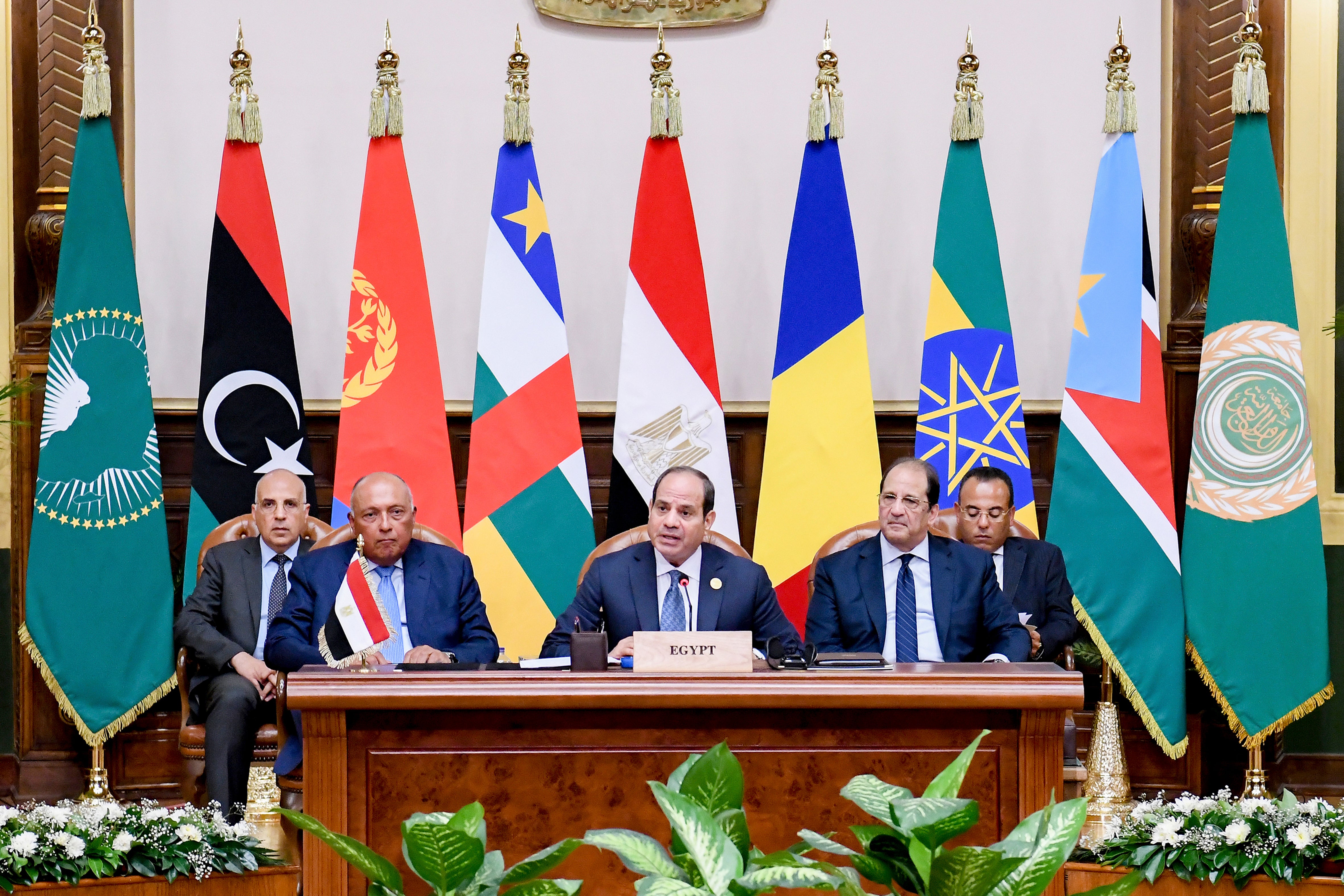Egypt, Ethiopia hope to reach agreement within 4 months after long dispute over Africa's largest dam
Ethiopia and Egypt say they aim to finalize within four months an agreement on the operations of Africa’s largest dam after years of failed talks

Your support helps us to tell the story
From reproductive rights to climate change to Big Tech, The Independent is on the ground when the story is developing. Whether it's investigating the financials of Elon Musk's pro-Trump PAC or producing our latest documentary, 'The A Word', which shines a light on the American women fighting for reproductive rights, we know how important it is to parse out the facts from the messaging.
At such a critical moment in US history, we need reporters on the ground. Your donation allows us to keep sending journalists to speak to both sides of the story.
The Independent is trusted by Americans across the entire political spectrum. And unlike many other quality news outlets, we choose not to lock Americans out of our reporting and analysis with paywalls. We believe quality journalism should be available to everyone, paid for by those who can afford it.
Your support makes all the difference.After years of failed talks, Ethiopia and Egypt said Thursday they aim to finalize within four months an agreement on the operations of Africa’s largest dam, an apparent breakthrough in a dispute that Cairo has described as an existential threat.
The joint statement on “expedited negotiations,” issued by Ethiopia’s government, came after Ethiopia’s prime minister, Abiy Ahmed, discussed the dam with Egypt’s President Abdel Fattah el-Sissi on the sidelines of a regional meeting about the conflict in neighboring Sudan.
Sudan is a third party to the talks about the $4.6 billion Grand Ethiopian Renaissance Dam on Ethiopia’s stretch of the Blue Nile, which is located just 10 kilometers (6 miles) from the Sudanese border.
Egypt depends on the Nile River to supply its booming population of 100 million with fresh water, while Ethiopia says the dam helps to pull millions of its 110 million citizens out of poverty. Tensions rose as the dam’s reservoir began to be filled annually in the past few years.
The new statement does not describe the foreseen agreement as a legally binding one, which Egypt and Sudan have sought. It also doesn’t say whether the talks will be under the auspices of the African Union, which Ethiopia has preferred. The United States has been among a variety of mediators in the past.
In a separate statement, the president of the African Union Commission, Moussa Faki Mahamat, commended the Ethiopian and Egyptian leaders for their “joint decision” to reinitiate the negotiations on the dam.
Key questions in the talks have been how the countries will resolve any future disputes around the dam and how much water Ethiopia will release downstream if a multi-year drought occurs.